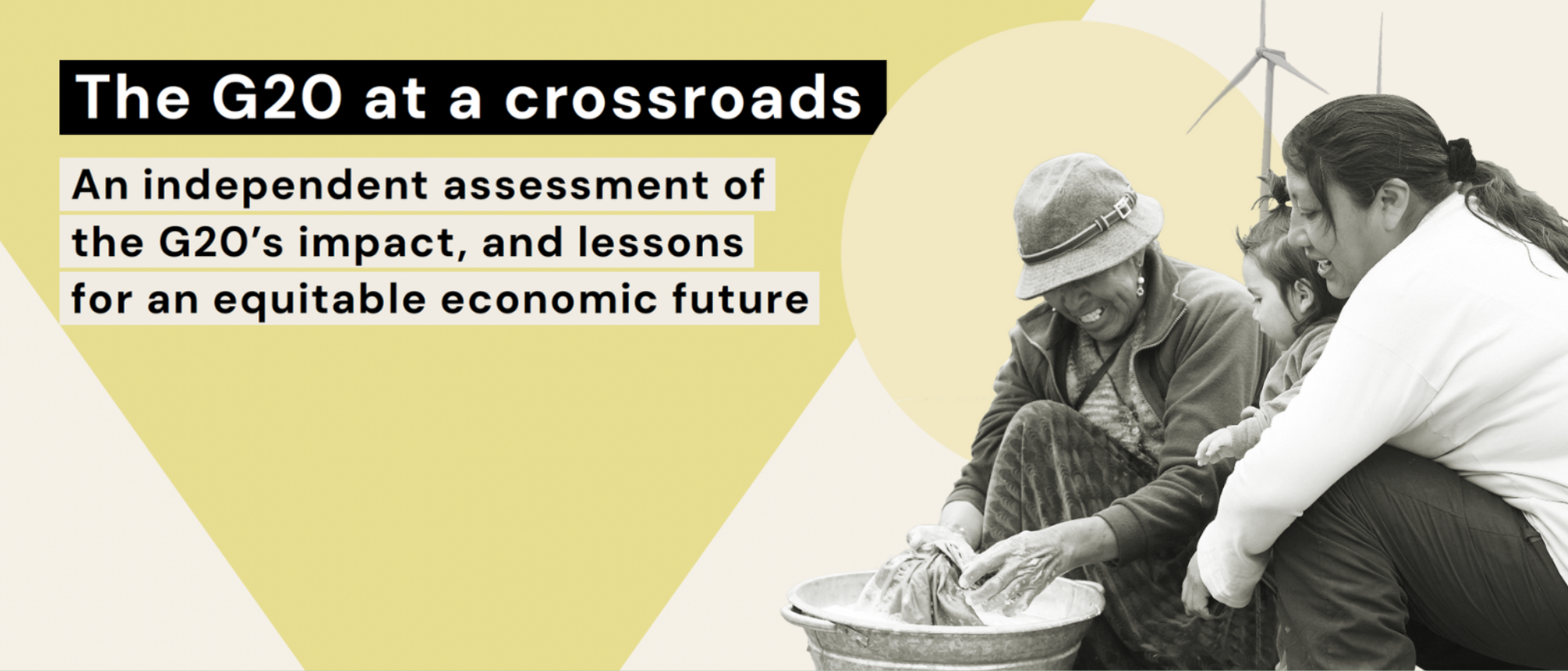
As the G20 prepares for its 20th leaders’ summit in South Africa this month, a new joint report, The G20 at a Crossroads, exposes the forum’s ongoing failure to deliver on its promises of inclusive and sustainable growth.
Produced by a coalition of global justice organizations, including CESR, the report finds that while the G20 has responded decisively to crises that threaten global financial markets, it has failed to confront the structural inequalities driving climate collapse, debt distress and economic insecurity, especially in the Global South.
The G20 now stands at a turning point. Nearly two decades after being elevated to a forum for global leadership, it has yet to realize its vision of “strong, sustainable, balanced and inclusive growth.” Instead, it continues to reinforce a model that concentrates wealth and power, while undermining human rights, equity and global solidarity.
The report calls on the G20 to shift its priorities. Rather than continuing to protect markets, it must address the real emergencies of our time: ecological breakdown, precarious work, forced displacement and deepening inequality. These threats to human rights and global stability demand the same urgency that the G20 has historically shown in responding to financial disruptions.
“This is a moment of reckoning,” said Fernanda Balata, lead author and associate fellow at the New Economics Foundation. “The G20 has the capacity to act. But for too long, it has upheld a system that protects elites, not people or the planet.”
While G20 decisions remain heavily shaped by the interests of the wealthiest G7 countries, the recent presidencies of Indonesia, India, Brazil and now South Africa show that alternative priorities can break through. These governments have pushed issues like taxing extreme wealth, financing just energy transitions and valuing care work.
“The Global South presidencies have shown what is possible when leadership reflects broader global priorities,” said Sarah Anderson of the Institute for Policy Studies. “The G20 can be a space for bold, coordinated action. But only if it listens and acts beyond the confines of market orthodoxy.”
Maria Ron Balsera, CESR’s Executive Director, added:
“People around the world are bearing the cost of an economic system built to protect wealth and power instead of rights and dignity. This report makes clear that the G20 has a choice. It can keep reinforcing this unjust system, or it can act on the priorities of the Global South and confront the deep inequalities it has helped create.”
The G20 at a Crossroads is the result of a collaboration between the New Economics Foundation (UK), the CESR, the Institute for Economic Justice (South Africa), the Institute for Policy Studies (US), and Transforma (Brazil). Drawing on research and advocacy from across regions, the report outlines concrete actions to build a global economy rooted in equity, dignity and democratic governance.
Read the full report here.
